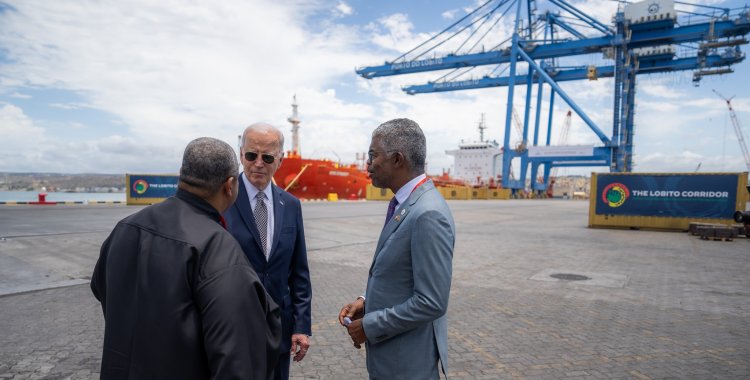Hunger and poverty have hit millions of Angolans vulnerable to rising food prices, with authorities calling for more attention to family farming and maximizing resources and civil society lamenting the lack of policies in this field.
Historical maximum inflation in Angola was recorded in April, a period in which it increased again for the 12th consecutive month, registering an annual variation of 28.02 percent, with a deceleration in the following months.
In November, the month in which the program for the celebrations of the 50th anniversary of the country's independence was announced, which is celebrated on November 11, 2025, thousands of citizens took to the streets asking for solutions to combat hunger.
Among the concerns about the socioeconomic conditions of families, the new international airport in Luanda "António Agostinho Neto", opened in November 2023, by the President, João Lourenço, registered its first passenger flight on the Luanda-Cabinda route.
The airport infrastructure, which cost around three billion dollars, has the capacity to receive up to 15 million passengers annually.
In December, Joe Biden, out of office at the White House, made the first visit by a president of the United States of America (USA) to Angola, fulfilling a promise made to João Lourenço.
The North American President, who visited the coastal city of Lobito, announced an increase in investment of 600 million dollars for the Lobito Corridor, the railway line that will connect the port of this city in the province of Benguela to the Democratic Republic of Congo (RDCongo ) and Zambia.
The 600 million dollars will add to the more than three billion dollars allocated so far by Washington to projects linked to the Lobito Corridor, infrastructure seen as an affirmation of US ambitions in relation to China on the African continent.
Biden also announced more than 1 billion dollars in new humanitarian assistance for Africans displaced by historic droughts and affected by famine.
The process of dismissal of the President of the Republic, an initiative of the National Union for the Total Independence of Angola (UNITA) returned to the spotlight, with the Constitutional Court (TC) ruling on the appeals presented by this party.
Parliament approved a new administrative division of Angola, with three new provinces – Icolo and Bengo, Moxico Leste and Cuando –, for a total of 21, an initiative disapproved by UNITA which accused the party in power of only wanting to delay the implementation of the municipalities in Angola.
Fuel smuggling in the country, after the governor of Zaire asked the head of state for support to resolve the problem in that border region with DRCongo, was one of the focuses in the fight against crime, in a year marked by the resignation of the Minister of the Interior (which has been in place since 2019, one of the longest-lasting under João Lourenço) and several top police officers.
In May, trade union federations suspended the third phase of the general strike following an agreement with the government, which included an adjustment to the national minimum wage and an adjustment to the civil service minimum wage with effect from January 2025.
The guarantee of fundamental freedoms and human rights in Angola were also at the center of the concerns of non-governmental organizations, in a year in which the country registered street demonstrations, with a large part of the protests resulting in arrests and intimidation, which did not spare journalists.
Amnesty International launched a worldwide campaign for the release of influencer and "tik-toker" Neth Nahara, imprisoned since August 2023 after releasing a video criticizing the President.







